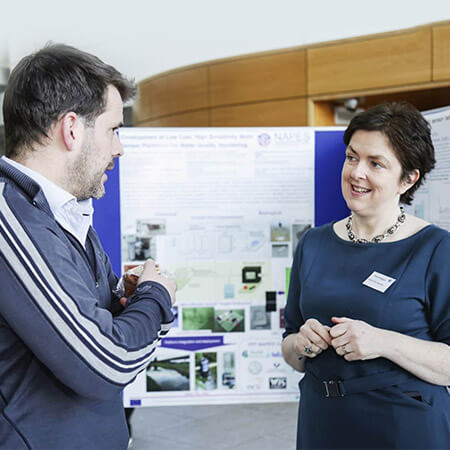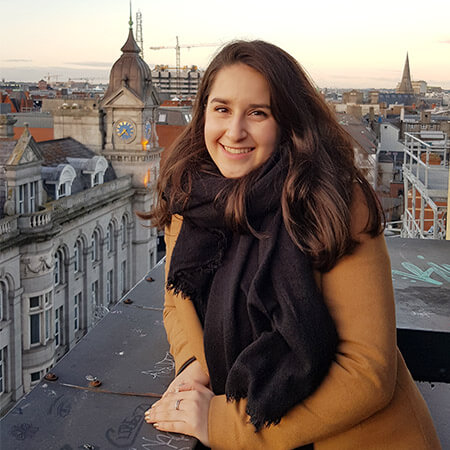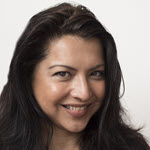The Digital for Youth programme
You may be tempted to believe that the next generation of our digitally native Gen-Z-bred workforce is already equipped with all the digital skills they’ll ever need. That’s not always the case, though.
Despite their hunger to learn, a significant amount of young people lack access to digital training, devices and WiFi. For those with access, mastering social media promotion is still not enough. Our modern workplaces also require an understanding of project management, analysis and presentation skills.
Luckily, the Digital For Youth Enactus programme, started by a group of UCD students, is working hard to address this digital skills gap. By equipping students early on in life, it aims to stave off unemployment.
Playing catch-up with the EU in digital learning
While Ireland’s economy has gone digital, our workforce hasn’t quite caught up yet.
In 2018, Ireland ranked in the EU’s bottom ten countries for digital skills. In an economy where 9 out of 10 jobs require digital competency, this is problematic.
An analysis of Cedefop’s European Skills for Jobs Survey reveals the share of people with low educational attainment or low skilled occupations who report needing ICT skills to do their jobs is considerably greater for workers in Ireland than their EU counterparts.

According to the EU Digital Economy and Society Index of 2018, half of Irish adults were actually at risk exclusion from the workforce because they lacked sufficient digital skills. Just 48% had basic digital skills. While the 2021 report shows this figure has increased to 53%, Ireland still lags behind the EU average.
So how do we avoid the growing gap between a generational cognitive elite and those with no access to relevant digital skills?
Practical digital skills for the real world
Digital for Youth wants to be a part of a working solution. Its programme aims to equip students in transition year – the 4th year of secondary school – with digital skills. This will build their confidence in carving out a path for themselves.
To do this, Digital for Youth provides social media marketing workshops, which foster the primary digital marketing competencies and presentation skills needed to help students prepare for working life.
Aditi Mittal, one of the teaching volunteers with Digital for Youth, reveals the practical approach taken.
“I have been teaching Digital Innovation and Creativity modules to students where I try to push them to think outside the box by asking them to work on simple problems which have simple solutions,” she says.
“I set up the base by teaching them about various business models, strategies that businesses use to scale and problem-solving techniques. At the end of the module, students are asked to prepare an interactive presentation on their respective business ideas.”
Students also get to impact Irish businesses by taking part in a group case study at the end of the module. Here, they apply the skills they learned throughout the programme.
Successful participants have begun to pay it forward, helping charities with their social media presence and engaging more people in turn.

A rewarding experience for all
Digital for Youth relies on volunteer instructors to run its programme. However, in the process, they also gain valuable experience, a new skill set and a special connection to their community.
The entrepreneurial, values-driven social innovators who form the global Enactus community drive the programme’s missionary zeal.
“Looking at the students being innovative and producing unique ideas inspires me,” says Aditi. “The experience has been wonderful and fulfilling. As an international student, I have gotten to learn about the culture of Ireland through these classes”.
Rolling out the Transition Year project
Having run successful projects with Santa Sabina Dominican College, St. Benildus College Secondary School and Portlaoise College, this award-winning programme is now being rolled out nationally.
The total cost per student is only €20 for both public and private schools. The programme takes full responsibility for module delivery, including marketing to students. Classes are also delivered free of cost to DEIS schools.

Upon completion, each student receives accreditation that covers essential digital marketing, design, presentation skills, analytics and client management.
The response to the programme is positive so far. Ann Fitzpatrick, Transition year Coordinator at St. Benildus College, says: “The Digital for Youth programme is an innovative, well organised and practical initiative that offers a unique experience to TY students. They are given the opportunity to work with experts in their field and gain insight into the business world.”
She received positive feedback from students and parents too. “They also learn how to work in groups effectively, plan and execute a marketing strategy and produce creative ideas,” she adds.
Signing up to Digital for Youth
Since Digital for Youth was first launched in 2020, the programme has gone from strength to strength.
Lessons were first taught over Zoom, but now the programme has its own interactive platform. This means students and teachers can access the content for certain modules at any time.
Digital For Youth is still looking for volunteers, as well as secondary schools who want to take part in its programme. To sign up, you can use the contact form on its website or send a message to digitalforyouth [at] gmail.com




